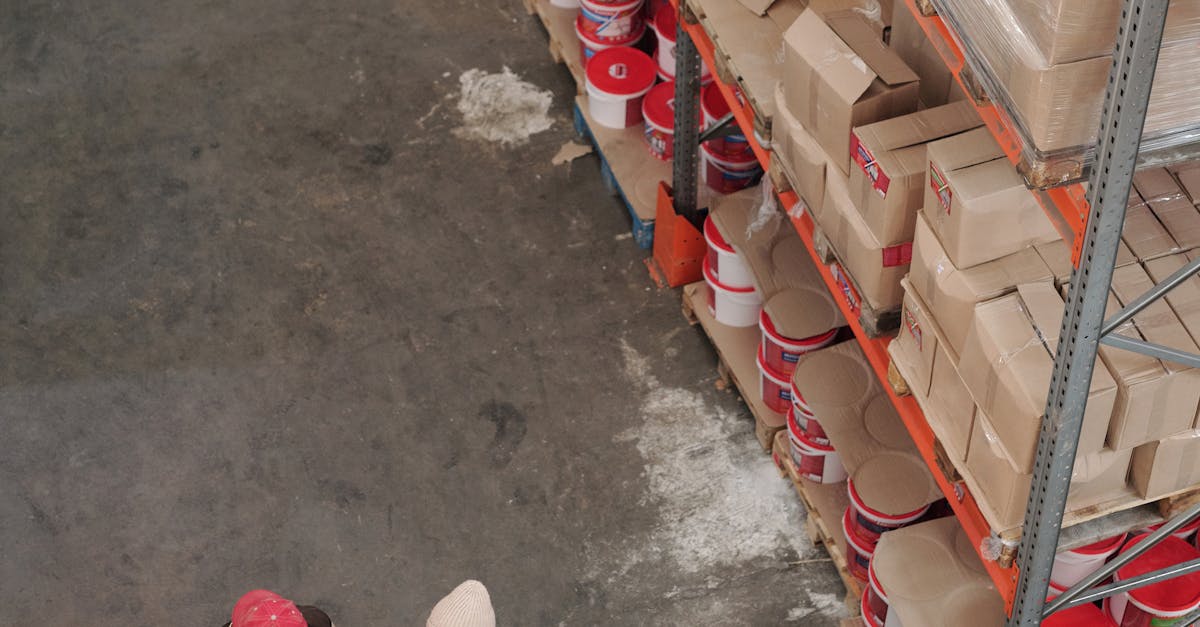
How to Optimise Your Fulfilment Processes
Optimising Shipping and Delivery
Streamlining shipping and delivery processes can significantly enhance overall fulfilment efficiency. Businesses should assess their logistics partners and select those that offer reliable services and competitive rates. Integrating technology, such as advanced routing software, can optimise delivery routes, reducing transit times. Implementing real-time tracking systems allows customers to monitor their orders, improving transparency and satisfaction.
Establishing clear communication channels with carriers is crucial for maintaining a seamless shipping process. Regularly reviewing performance metrics helps identify areas for improvement. Adopting methods like just-in-time inventory can minimise delays and ensure that products are shipped promptly. Consideration of seasonal demand fluctuations can further assist in planning and executing an effective shipping strategy.
Best Practices for Faster Shipping
Efficient shipping relies heavily on streamlined processes and the right technology. Investing in automated systems can significantly reduce manual errors and speed up order processing. Implementing real-time inventory management ensures that stock levels are always accurate, allowing for prompt fulfilment. By choosing reliable shipping partners that offer varied delivery options, businesses can provide customers with better choices, enhancing their experience while maintaining operational efficiency.
Fostering transparency in shipping communications is vital for customer satisfaction. Providing tracking information as soon as orders are dispatched keeps customers informed and reassured. Additionally, establishing a clear policy for returns and exchanges can facilitate quicker processing times, allowing for seamless resolutions when issues arise. Regularly reviewing and optimising shipping routes can also lead to reduced delivery times, ensuring that packages arrive as quickly as possible.
Focusing on Customer Experience
Understanding customer needs is crucial for any successful fulfilment process. When clients receive their orders promptly and in perfect condition, satisfaction increases significantly. Streamlined communication regarding order status and delivery updates builds trust. It is also essential to offer various delivery options that cater to different customer preferences. These practices lead to a positive impression and encourage repeat business.
Creating a seamless return process further enhances the overall customer experience. When customers know they can easily return or exchange items, it alleviates anxiety associated with online shopping. Additionally, gathering feedback from customers after their purchase can provide insights into areas requiring improvement. Each interaction shapes their perception of the brand, making it important to focus on every detail of the fulfilment journey.
Importance of Timely Fulfilment
Timely fulfilment is crucial in maintaining customer satisfaction and loyalty. When orders are dispatched promptly, customers feel valued and are more likely to return for future purchases. Delays not only lead to frustration but can also tarnish the reputation of a business. In the competitive landscape of e-commerce, where customers have numerous options available, the speed of order fulfilment can be a decisive factor in making or breaking a sale.
Additionally, efficient fulfilment processes contribute to operational excellence. When products reach customers on time, it reflects well on the organisational capability and enhances the overall customer experience. This reliability can differentiate a business from its competitors. Streamlined fulfilment allows companies to manage expectations effectively, creates trust, and ultimately drives growth through repeat business and positive word-of-mouth.
Training Staff for Better Performance
An efficient fulfilment process relies heavily on the proficiency of the workforce. Investing in thorough training programmes equips staff with the necessary skills and knowledge to handle various tasks effectively. Regular workshops and hands-on sessions can reinforce best practices in order processing, inventory management, and shipping protocols. Encouraging employees to engage with technology and software can streamline their workflow, reducing errors and increasing productivity.
Continual development is essential for maintaining high standards. Encouraging staff to take part in ongoing training sessions fosters a proactive learning environment. Implementing performance reviews allows for tailored training opportunities that address specific weaknesses or areas for improvement. Creating a culture that values skill enhancement not only boosts output but also motivates individuals to contribute positively to the team dynamics.
Developing Skills for Efficiency
Efficiency in fulfilment processes hinges on the continuous development of staff skills. Regular training programmes should offer a combination of theoretical knowledge and practical experience tailored to the specific needs of the organisation. Workshops that focus on technology use, inventory management, and the latest industry practices can enhance employees' capabilities. This ensures that staff remain up to date with evolving trends and tools essential for effective operations.
Encouraging a culture of learning within the workforce promotes individual growth and contributes to overall organisational efficiency. Employees should feel empowered to seek out additional training and development opportunities. Mentorship can play a vital role in this process by pairing experienced team members with newer staff. Through sharing insights and best practices, organisations can foster a more skilled and agile workforce ready to tackle any challenge in fulfilment processes.
FAQS
What are the key factors to consider when optimising shipping and delivery?
Key factors include selecting reliable shipping partners, using advanced tracking technology, managing inventory effectively, and streamlining packaging processes.
How can I ensure timely fulfilment for my customers?
To ensure timely fulfilment, maintain accurate inventory levels, implement efficient order processing systems, and monitor shipping times closely to address any potential delays.
What best practices can I adopt for faster shipping?
Best practices for faster shipping include offering multiple shipping options, using regional fulfilment centres, automating order processing, and optimising your supply chain management.
Why is customer experience important in fulfilment processes?
Customer experience is crucial as it directly influences customer satisfaction, retention, and loyalty. A positive fulfilment experience can lead to repeat business and favourable word-of-mouth referrals.
How can I train my staff for better performance in fulfilment operations?
You can train your staff by providing ongoing education about fulfilment technologies, conducting regular performance assessments, encouraging teamwork, and fostering a culture of continuous improvement.
Related Links
What to Consider When Selecting a Fulfilment ServiceHow to Choose the Right Fulfilment Service for Your Business
Roundup of Best Practices in Fulfilment Services
10 Key Benefits of Using Fulfilment Services
Review of the Top Fulfilment Services in the Market